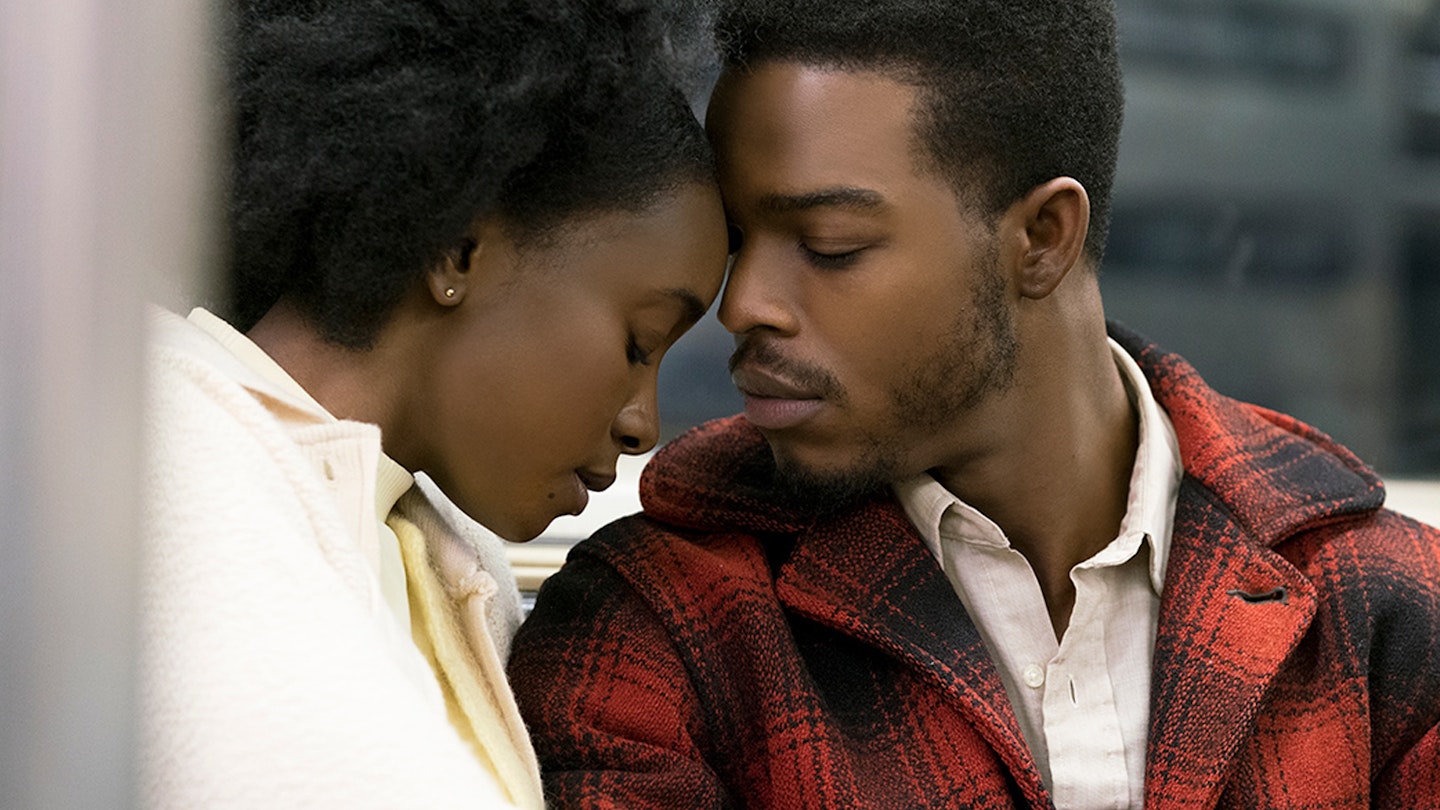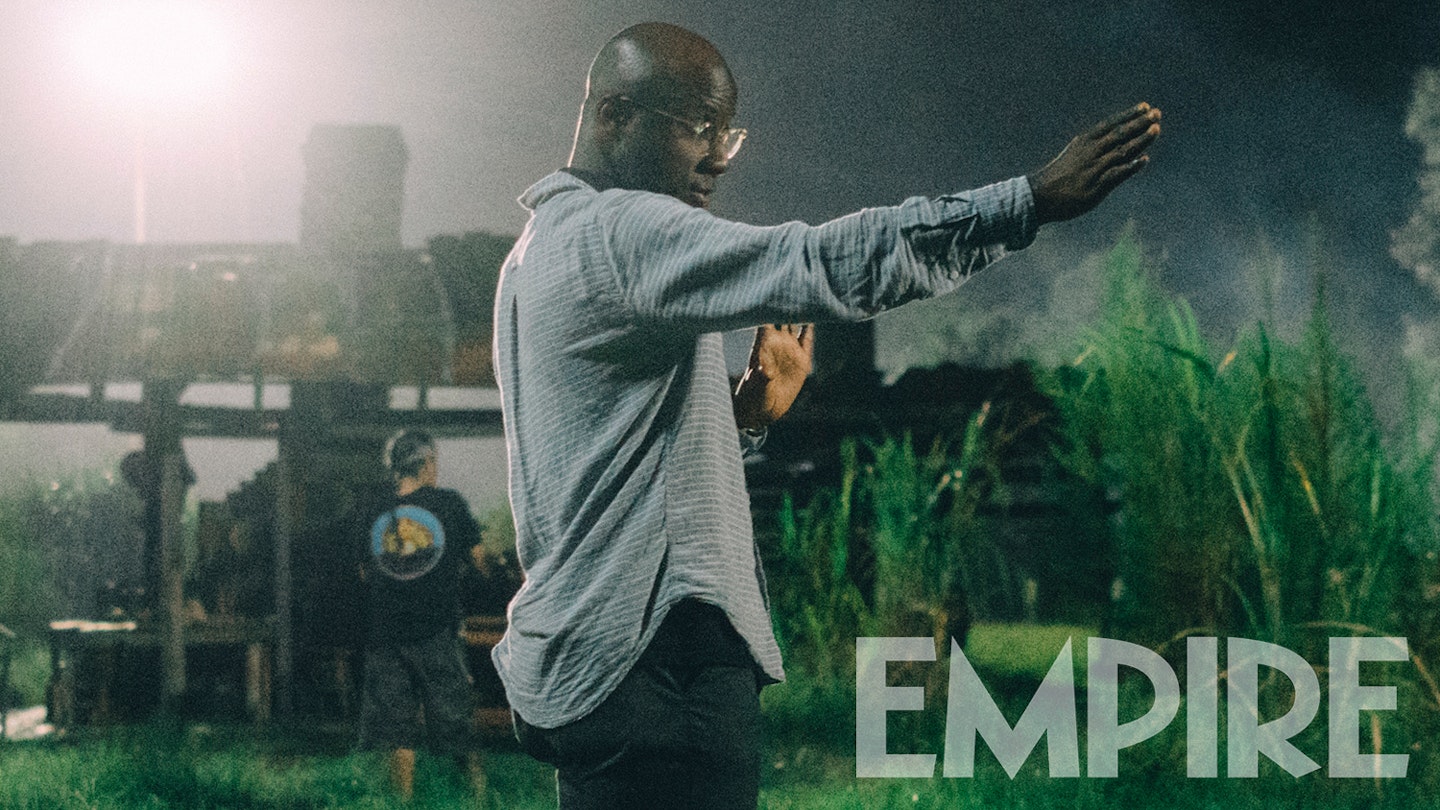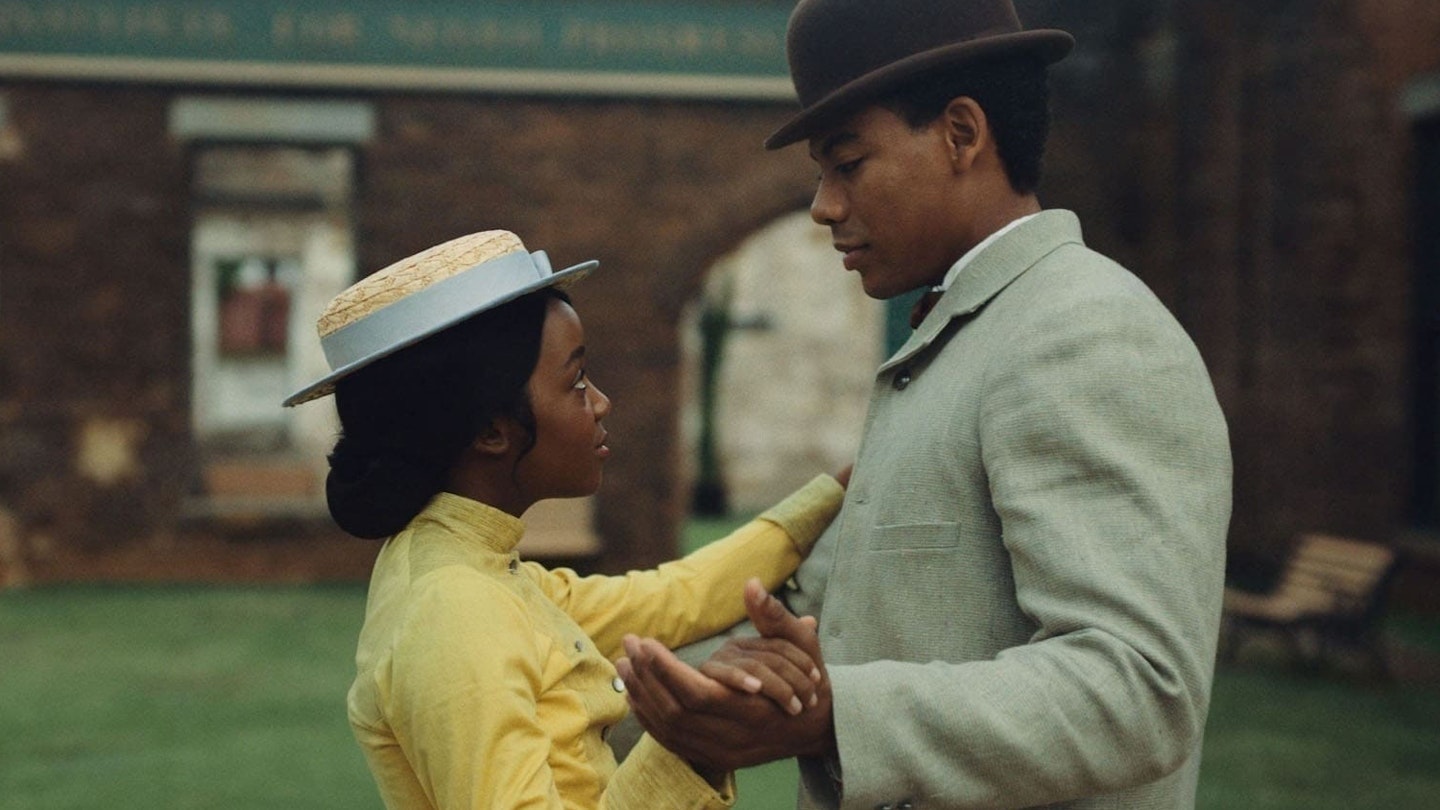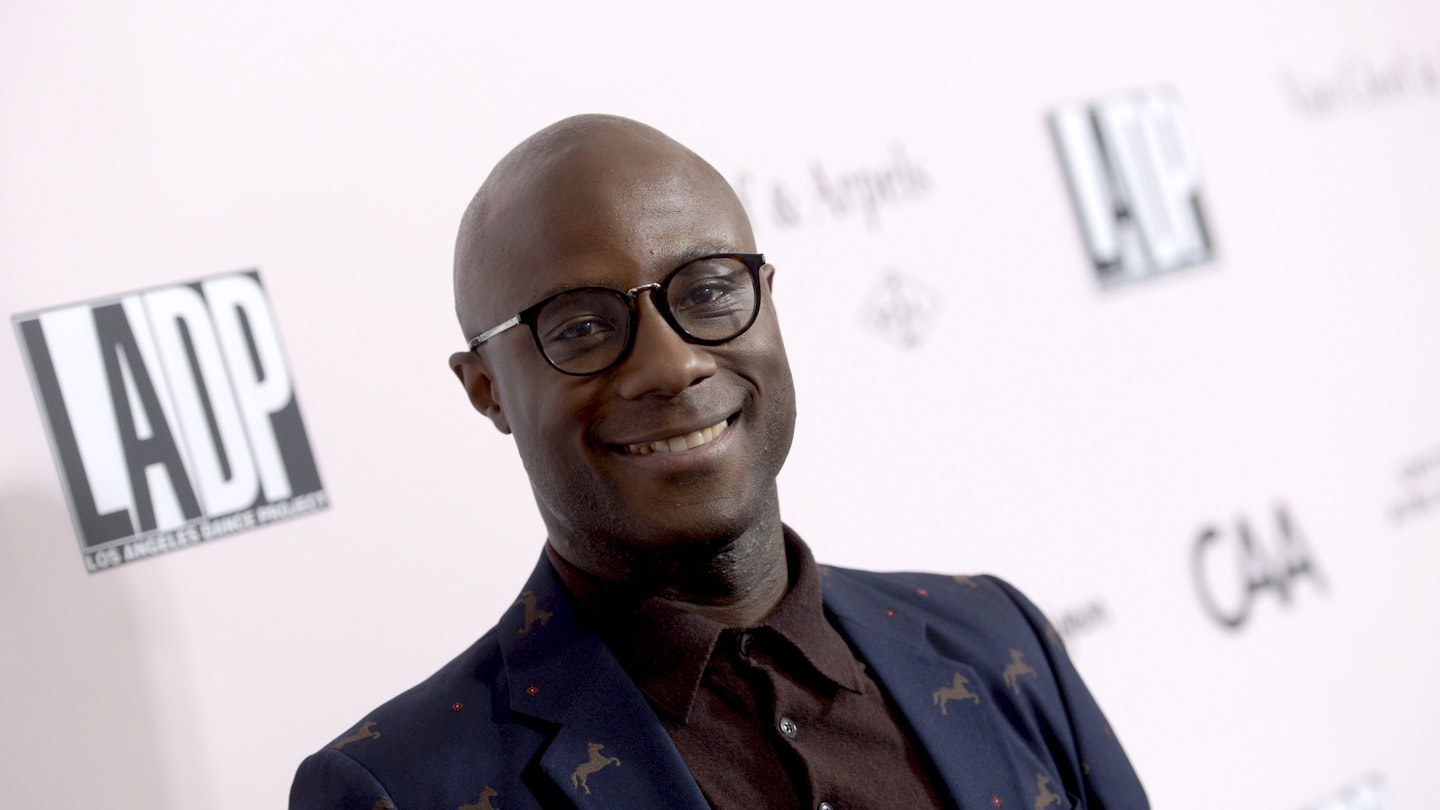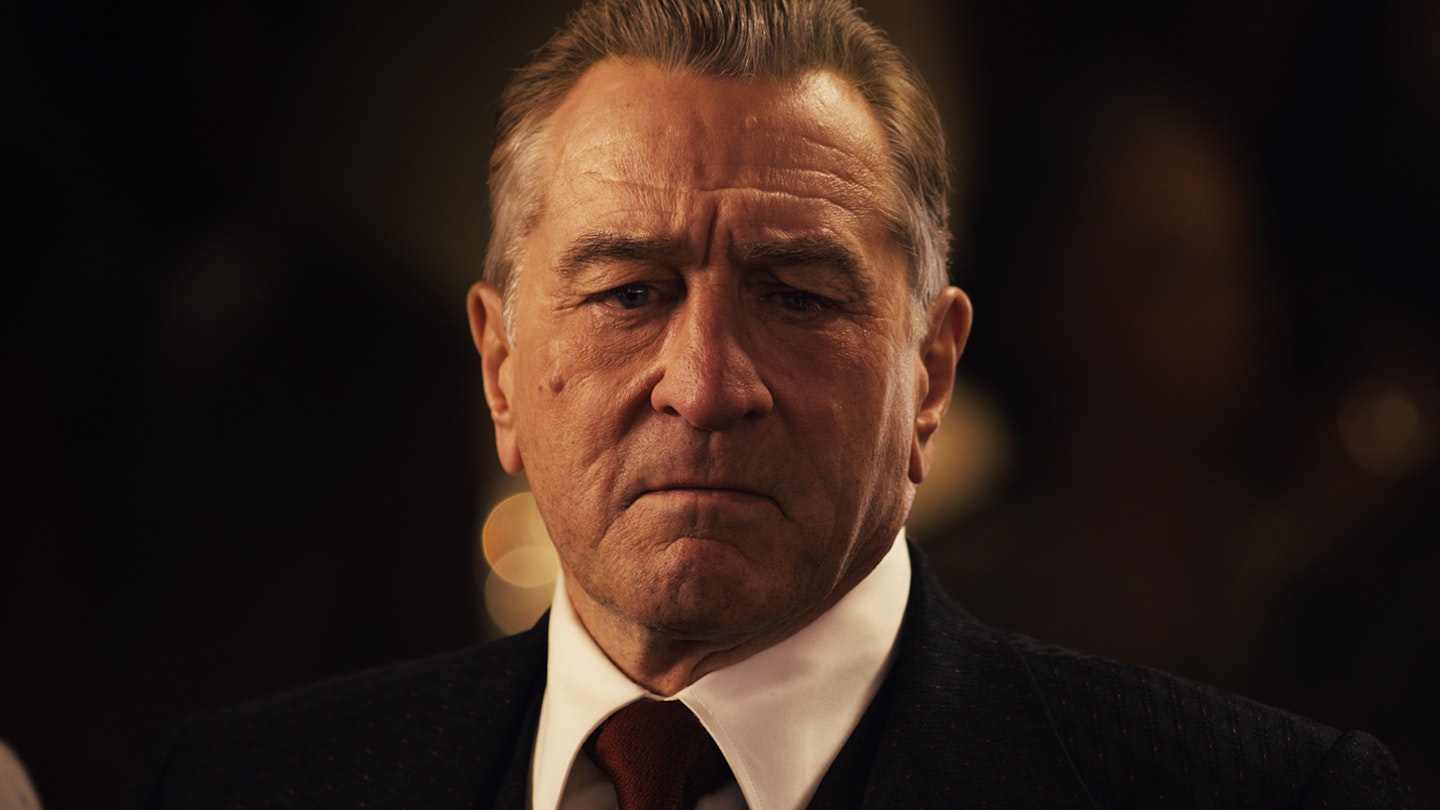Two years ago, Barry Jenkins won Best Picture at the Oscars for Moonlight, a devastatingly emotional look at identity, deprivation and the search for connection that binds us all. For his follow-up, Jenkins returned to a project he’s been trying to make for years, an adaptation of James Baldwin’s passionate depiction of love and loss in 1970’s Harlem. The result is just as luminous, if a little more mainstream.
Jenkins’ approach is elegantly simple. He shows us two of the most beautiful young humans on the planet, takes us through their love story until we’re as enamoured with them as they are with one another, and then puts them through hell. The result is the most sweepingly romantic polemic you’ll ever see, a love story that will make you want to take up arms against a cruel world.
Fonny (Race’s Stephan James) and Tish (near newcomer KiKi Layne) have known one another all their lives before they fall in love in young adulthood. Fonny, a little older, plans to be a sculptor, while Tish works at a department store perfume counter. She’s just become pregnant when he is arrested and falsely charged with rape. Left alone to tell her news to both families, Tish and her clan work together to clear Fonny’s name and get him back before their baby is born.
It's a beautiful film, but weighty too.
Regular flashbacks to Fonny and Tish’s lives together reveal their blooming romantic feelings, but there is also forward motion here in his legal quest for justice, with family help. Tish’s father Joseph (Colman Domingo) and Fonny’s dad Frank (Michael Beach) raise money for an idealistic lawyer (Finn Wittrock) who’s doing what he can. Meanwhile, Tish’s mum Sharon (Regina King) goes to great lengths to seek out the evidence that could free him.
It’s a beautiful film, but weighty too. It humanises black men in a way that the media, often, does not. We see Fonny as a loving, considerate boyfriend, and Joseph and Frank as devoted fathers who would do anything for their families. None of them are idealised or faultless, but they’re all the more sympathetic for that. It also shows the strength required of black women to survive intersectional racism, as Tish visibly begins to grow steel around her spine, and Sharon goes to war in the most dignified, careful, womanly way possible. Most of all, this shows the effects of not just one racist apple but a whole rotten system of prejudice, injustice and money.
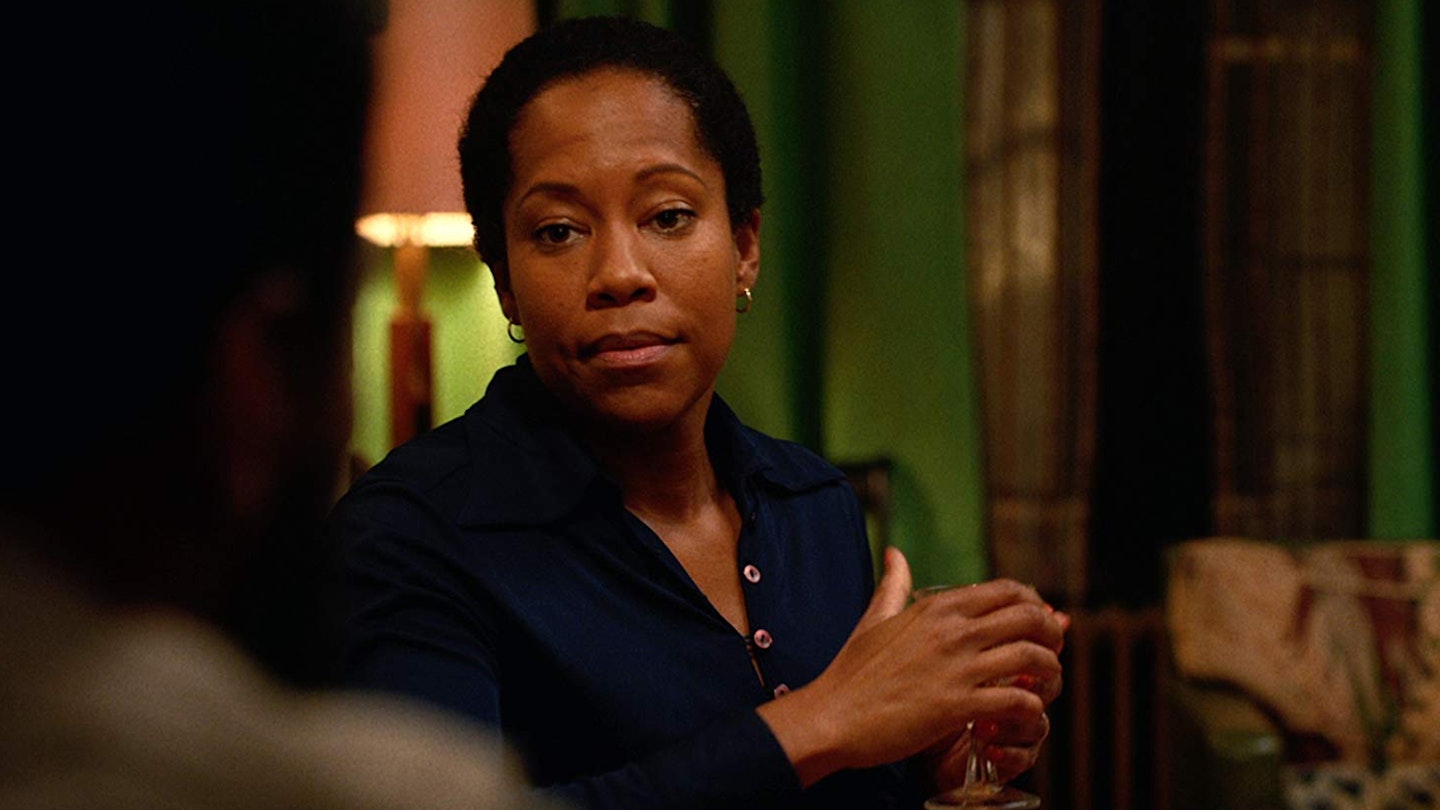
Jenkins wisely stuck with the behind-camera team that worked so well for him before. Moonlight cinematographer James Laxton somehow manages to inject a sunlit, amber glow even into Tish and Fonny’s basement apartment, giving the film a golden sheen of memory and summertime that reflects its protagonists’ hopes. And composer Nicholas Britell, whose stripped-back jazz score’s theme haunts the film, lightly punctuates the emotion without overwhelming it. The dialogue, adapted by Jenkins himself, is sometimes a little dense and novelistic, unwilling to strip out too much of Baldwin’s prose, but it’s also frequently lyrical. Equally, some lighter scenes — particularly a short, likeable cameo by Dave Franco — will be divisive, but these moments of levity serve to both momentarily relieve and generally emphasise the darkness.
Set in the 1970s but feeling all too contemporary, this is powerful but not self-righteous; it never descends into that dry, medicinal ‘important film’ slog. The overwhelming feeling is one of love, both the romantic kind that can endure great hardship and the familial kind that supports and protects its own. The great tragedy of the film is that love is not enough to protect us entirely against the world’s cruelty, and that such ordeals could even be inflicted in the first place.
